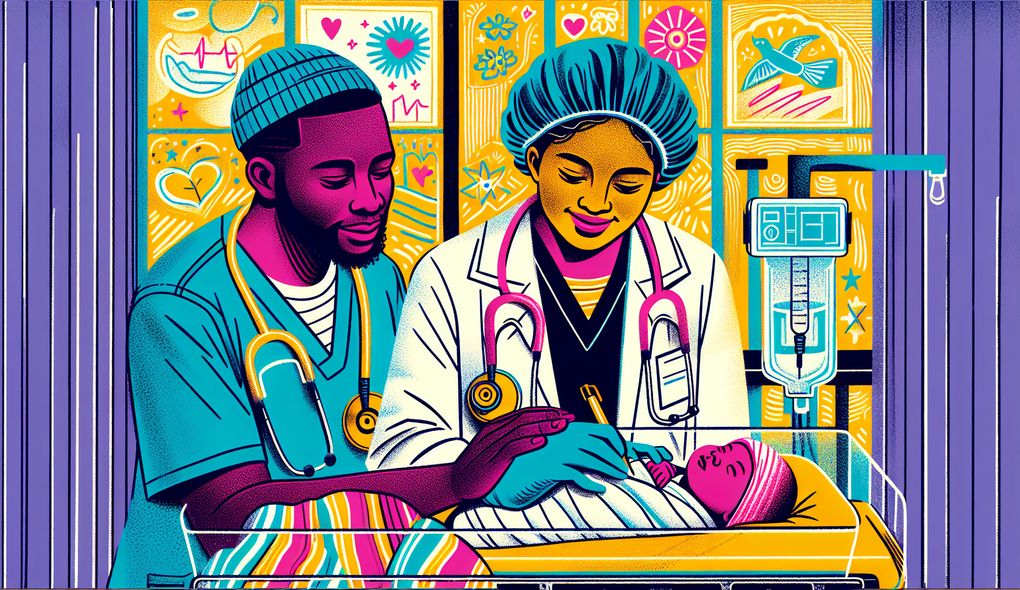How do you prioritize and make quick decisions under pressure?
SENIOR LEVEL

Sample answer to the question:
When it comes to prioritizing and making quick decisions under pressure, I rely on a combination of organization, critical thinking, and effective communication. First, I prioritize tasks by assessing their urgency and impact on patient care. I create a to-do list and delegate non-essential tasks when appropriate. Next, I use critical thinking to analyze the situation and consider all available information and options. I weigh the potential risks and benefits of each decision and make a choice based on the best possible outcome for the patient. Finally, I communicate my decisions clearly and promptly to the healthcare team, ensuring that everyone is on the same page. This allows for efficient coordination and minimizes misunderstandings. Overall, my ability to prioritize and make quick decisions under pressure is a combination of organization, critical thinking, and effective communication.
Here is a more solid answer:
When faced with pressure and the need to make quick decisions, I have developed a reliable process that ensures I prioritize effectively and make the best choices. Firstly, I assess the urgency and importance of tasks by considering their impact on patient care. This helps me create a prioritized to-do list and delegate non-essential tasks when possible. Secondly, I rely on my critical thinking skills to gather and analyze all relevant information. I consider potential risks, benefits, and alternatives, ensuring a thorough evaluation of the situation. This allows me to make informed choices that maximize patient outcomes. Thirdly, effective communication is crucial in these moments. I promptly and clearly communicate my decisions to the healthcare team, ensuring everyone understands the rationale behind them. This facilitates coordination and minimizes misunderstandings. To further enhance my ability to prioritize and make quick decisions, I continuously seek feedback, learn from experiences, and stay updated on evidence-based practices.
Why is this a more solid answer?
The solid answer provides more specific details and examples to support the candidate's skills in prioritizing tasks, critical thinking, and effective communication. It also emphasizes their commitment to continuous improvement. However, it could benefit from further elaboration on the candidate's experiences in high-pressure situations.
An example of a exceptional answer:
In high-pressure situations, my approach to prioritizing and making quick decisions involves a multi-step process. Firstly, I quickly assess the urgency and potential impact of tasks by considering their relevance to patient safety and well-being. I prioritize accordingly, ensuring that immediate and critical needs are addressed first. Secondly, my critical thinking skills come into play as I gather and analyze relevant information. I consider factors such as the patient's medical history, current condition, and available resources. This comprehensive evaluation allows me to identify potential risks, benefits, and alternative courses of action. I employ evidence-based practices and rely on my experience to guide decision-making. Thirdly, effective communication is essential during high-pressure situations. I keep the healthcare team informed of the situation, my thought process, and the decisions made. This promotes collaboration, enhances situational awareness, and allows for timely adjustments if necessary. Furthermore, I understand the importance of self-care and emotional resilience in high-pressure environments. I utilize various stress management techniques, such as deep breathing and positive self-talk, to maintain composure and focus. Overall, my ability to prioritize and make quick decisions under pressure is strengthened by a combination of rapid assessment, critical thinking, effective communication, and self-care practices.
Why is this an exceptional answer?
The exceptional answer provides a detailed and comprehensive response that highlights the candidate's ability to prioritize and make quick decisions under pressure. It includes specific steps, examples, and considerations that demonstrate their skills in these areas. The answer also emphasizes the importance of self-care and emotional resilience. This answer goes above and beyond the basic and solid answers by providing a deeper understanding of the candidate's thought process and approach in high-pressure situations.
How to prepare for this question:
- Familiarize yourself with the job description and the specific skills and qualifications required for the role. Pay particular attention to the requirement of ability to make quick decisions under pressure.
- Reflect on your past experiences in high-pressure situations and identify specific examples where you had to prioritize and make quick decisions.
- Practice your critical thinking skills by solving problems or scenarios that require quick decision-making.
- Develop your communication skills, both verbal and written, to ensure effective communication in high-pressure situations.
- Learn about stress management techniques and self-care practices to maintain composure and focus in stressful environments.
What are interviewers evaluating with this question?
- Ability to prioritize tasks
- Critical thinking skills
- Effective communication skills

